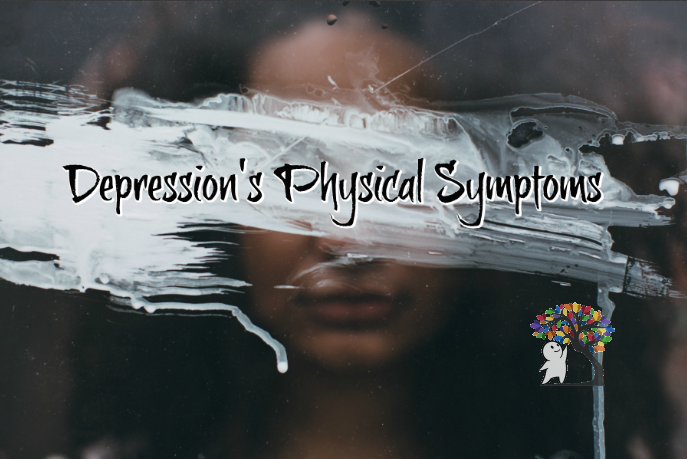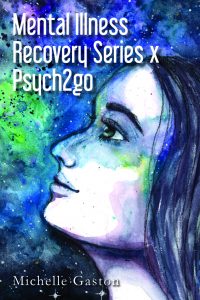Depression’s Physical Symptoms

Depression affects millions of people worldwide. People struggle with feelings of worthlessness, unwanted intrusive thoughts, lack of motivation, suicide ideation, feelings of sadness or emptiness, trouble concentrating and much more. At times we focus so much on the psychological effects of depression that we forgot it also has physical symptoms as well. These can range from mild to severe. It is important to become aware of your physical symptoms. This way you can understand how your depression manifests and gain control over it. Some of the physical symptoms are:
-

pic by: felix russell Chronic fatigue
- Decreased or increased appetite
- Insomnia or hypersomnia
- Decreased sex drive
- Constricted heart vessels
- Elevated pain sensitivity
- Weight fluctuations
- Headaches
- Stomachaches
- Weakened immune system
- Chronic body aches, such as: joint, limbs, breast tenderness or back pain
- Digestive system problems, like: Irritable bowel syndrome, diarrhea or constipation
- Cardiovascular problems, such as: coronary artery disease
- Increased inflammation throughout the body

Did you know depression can affect the immune system? It makes is harder for you to fight of infections. The lack of sleep and stress weakens the immune system. Due to this an existing illness can get worse or it can be easier for you to catch the cold. Depression has even been linked to heart disease and other cardiovascular problems. This occurs because stress and depression are closely linked. Stress hormones such as cortisol can constrict blood vessels. Keeping your body in a prolonged state of fight or flight. In time, it can lead to heart disease and increase your chances of a heart attack.
There have been various studies in the past that suggests there is a connection between inflammation and depression. This may explain why people with autoimmune disorders have a higher predisposition to depression. Not only that, but it has been shown that some people benefit from anti-inflammatory medication. Although, this is an area that needs more research it seems to be promising.

Depression has also been linked to gastrointestinal problems. This is believed to influence your mood because most of your serotonin is produced and stored in the gut. If there are problems in this area, then your serotonin production can become affected and in turn worsen your depression and body ache. Also, this mental disorder can affect your psychomotor activity. Therefore, during a major depressive episode you may feel heavy or sluggish.
People living with a chronic health condition have reported that their symptoms worsen when they are depressed. Suggesting that depression can exacerbate their pain. When this happens, your doctor should take into consideration your condition and depression. Only by doing so, can you have an improved quality of life.

It’s a nasty cycle because depression increases your risk of pain and illness and then in turn the illness will make you feel worse affecting your depression. Therefore, it is important to understand your physical symptoms. Many of us go to our primary doctor complaining about pain that seems to have no cause. On the other hand, if you do have a chronic health condition and you are on a treatment that suddenly stopped working. Then depression could be the cause of the sudden change. It is essential that you speak to your doctor if you suspect of depression.
I hope this article helps you understand a bit more of what you are going through. Do you experience physical symptoms? If so let me know in the comment section below.
Related: Dear, Suicidal Person / 9 Unhealthy Behaviors Adults Have After Going Through Childhood Trauma
Checkout Psych2Go’s book about Mental Health Recovery
 Check it out here: Mental Illness Recovery Book, “Something I truly enjoyed about this book is the simplicity and the variety of stories which are all focusing in one subject; mental illness. It’s amazing to see how this book connects each story to one another and to the reader. It provides a direct insight of living with mental illness and tips on how to overcome some disorders. If you feel lost, or if you want to help a friend or family member then this is the book for you.” -Carelyn
Check it out here: Mental Illness Recovery Book, “Something I truly enjoyed about this book is the simplicity and the variety of stories which are all focusing in one subject; mental illness. It’s amazing to see how this book connects each story to one another and to the reader. It provides a direct insight of living with mental illness and tips on how to overcome some disorders. If you feel lost, or if you want to help a friend or family member then this is the book for you.” -Carelyn




Yes I was a hypochondriac before but now I constantly fret over any pain or sniffle….I’m constantly paranoid about getting a severe illness it keeps me up at night-I can’t hardly AleX for more than 2 hrs at a time 🙁
I’m obviously depressed lol
My first reaction is split between “Sounds like they need a better editor,” and “Hey, this is really informative. I think I’m gonna write this stuff down, put it in my room or something.” Thank you, though. This really puts my depression into the open, for me to see in a much clearer mind. As luck would have it, today is one of my ‘high’ days.
Thank you this was very informative.
Just saying, but the “sentence” that starts “On the other hand, if you do have a chronic health condition…” in your next-to-last paragraph is not actually a sentence.